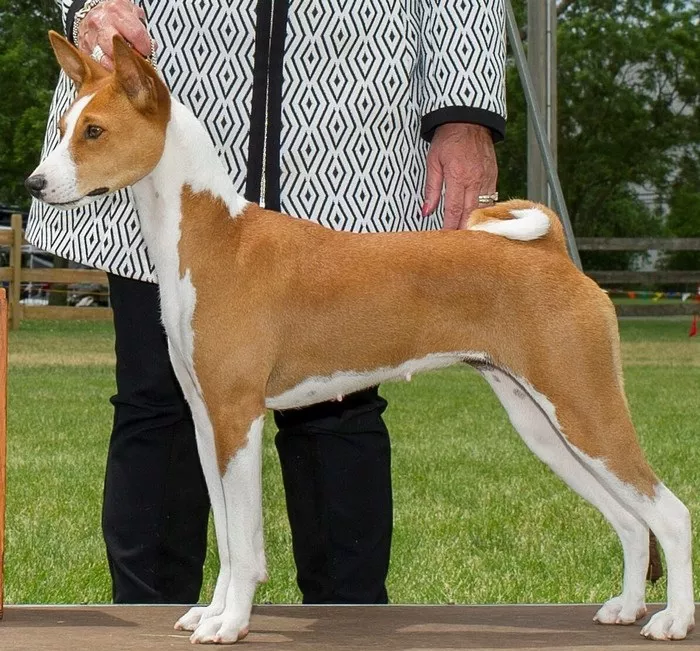Training your Basenji is not just about obedience; it’s a journey that strengthens the bond between you and your canine companion. In this comprehensive guide, we explore essential training techniques, from foundational commands like sit and down to selecting the right collar, enrolling in appropriate classes, and accessing valuable resources for effective training. Whether you’re a first-time Basenji owner or looking to enhance your training skills, this guide provides insights to help you navigate the world of Basenji training with confidence.
The Sit and Down Commands
Teaching your Basenji the sit and down commands lays the groundwork for a well-behaved and responsive companion. These fundamental commands not only facilitate day-to-day interactions but also serve as a basis for more advanced training. Use positive reinforcement, such as treats and praise, to encourage your Basenji to associate these commands with positive experiences. Consistency is key, so practice these commands regularly in different environments to reinforce the learning process. The sit and down commands form the foundation upon which you can build a range of behaviors and tricks.
Leather or Nylon Buckle Collar
Selecting the appropriate collar is a crucial aspect of effective training. Leather and nylon buckle collars are popular choices, each with its advantages. Leather collars offer durability and a classic look, while nylon collars provide a lightweight and customizable option. The buckle closure ensures a secure fit during training sessions. Consider your Basenji’s comfort and your training goals when choosing a collar. The right collar enhances communication during training and reinforces positive behaviors.
Choosing an Appropriate Class
Enrolling in a training class is a valuable step in the training journey, offering structured guidance and socialization opportunities. Choosing an appropriate class involves considering factors such as your Basenji’s age, skill level, and your specific training goals. Puppy kindergarten classes focus on early socialization and basic commands, while novice or beginning obedience classes cater to dogs of all ages, reinforcing essential commands. Research local options, read reviews, and consult with trainers to find the class that aligns with your Basenji’s needs and your training objectives.
Puppy Kindergarten
Puppy kindergarten classes are designed to introduce young Basenjis to basic commands and positive social interactions. These classes play a crucial role in shaping your Basenji’s behavior and building a strong foundation for future training. Trainers in puppy kindergarten often provide guidance on common puppy behaviors, such as biting and chewing, setting the stage for a well-behaved adult Basenji. Consider puppy kindergarten as an investment in your Basenji’s social skills and overall training success.
Novice or Beginning Obedience
For Basenjis beyond the puppy stage, novice or beginning obedience classes offer a structured environment to reinforce and advance basic commands. These classes focus on commands such as sit, down, stay, and come, providing valuable tools for effective communication. Novice obedience classes also address common behavioral challenges, allowing owners to seek guidance from experienced trainers. Continued training throughout your Basenji’s life maintains and refines their skills, contributing to a well-mannered and responsive companion.
Useful Training Books
In addition to hands-on training, educating yourself through training books enhances your understanding of Basenji behavior and training techniques. Several books cater to various skill levels and cover a range of training topics. “The Power of Positive Dog Training” by Pat Miller, “Don’t Shoot the Dog!” by Karen Pryor, and “The Culture Clash” by Jean Donaldson are just a few examples. Incorporating insights from these books into your training routine provides a well-rounded approach, creating a positive and effective training experience for you and your Basenji.
Some Useful Websites
The digital age offers a treasure trove of online resources for Basenji training. Websites such as the American Kennel Club (AKC), The Association of Professional Dog Trainers (APDT), and Leerburg provide articles, videos, and forums where experienced trainers and owners share insights. These platforms serve as virtual communities, offering support and advice on training methods, behavioral challenges, and breed-specific considerations. Explore these websites to complement your hands-on training efforts with a wealth of knowledge from the broader dog training community.
Interactive Toys
Interactive toys are valuable tools in Basenji training, offering mental stimulation and acting as rewards during sessions. Puzzle toys, treat-dispensing toys, and interactive fetch toys engage your Basenji’s mind, making training sessions enjoyable and effective. Use these toys strategically to reinforce positive behaviors and create a positive association with training. Rotating toys keeps your Basenji’s interest high and prevents boredom-related behaviors, contributing to a well-rounded and happy training experience.
Regular Training Routine
Establishing a regular training routine is essential for long-term success. Consistency in training practices helps your Basenji internalize commands and behaviors, leading to a well-behaved companion. Schedule regular training sessions, incorporating a variety of commands and activities to keep your Basenji engaged. Consistent training also strengthens the bond between you and your dog, fostering mutual trust and understanding. A well-maintained training routine contributes to a lifetime of training success and a harmonious relationship with your Basenji.
Conclusion
Training your Basenji is a dynamic and rewarding journey that extends throughout their lifetime. From foundational commands like sit and down to choosing the right collar and enrolling in appropriate classes, every step contributes to building a strong bond and well-behaved companion. Educate yourself through training books and online resources, and leverage interactive toys for mental stimulation. Embrace training as an ongoing process, adapting to your Basenji’s changing needs and skill levels. By investing time and effort into training, you ensure a lifelong bond built on trust, communication, and shared moments of joy with your beloved Basenji


